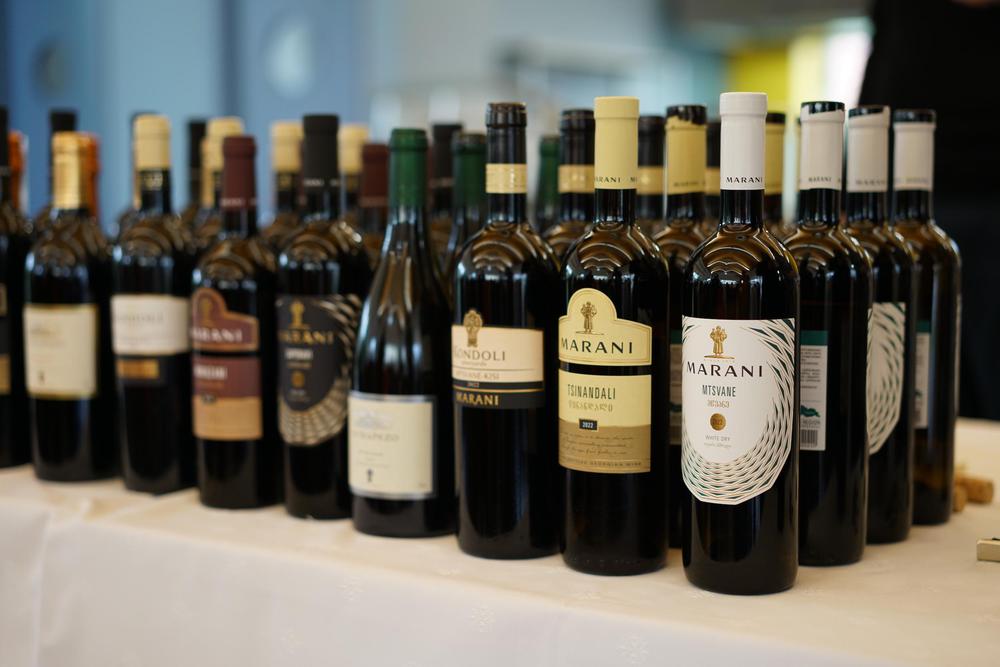In the picturesque landscapes of Eastern Georgia, a winemaking revival is unfolding, marking a significant post-Soviet era transformation. This resurgence is deeply rooted in Georgia's ancient winemaking traditions, dating back 8,000 years, with a renewed focus on traditional methods and indigenous grape varieties. The story of Georgian wine's revival is a testament to cultural resilience and adaptation in the face of historical shifts.
The Qvevri: Emblem of Tradition and Innovation
Central to this revival is the qvevri, an ancient clay vessel, pivotal in traditional Georgian winemaking. Artisans like Remi Kbilashvili are at the forefront of this resurgence, crafting these vessels just as their ancestors did. The increasing demand for qvevris reflects a growing global appreciation for authentic, traditional winemaking techniques. These clay vessels, buried in the earth, facilitate a unique fermentation process, starkly contrasting the Soviet-era focus on mass-produced wines.
This revival of the qvevri method is a rebuke to the homogenization that occurred under Soviet rule when diverse grape varieties and traditional methods were sidelined for standardized production. The qvevri's resurgence symbolizes a return to roots and an embrace of Georgia's rich winemaking heritage.
The Soviet Legacy and its Unintended Catalyst
The Soviet regime's impact on Georgian winemaking was profound, reshaping it to cater to a sweet wine preference, especially for the Russian market. However, the 2006 Russian embargo on Georgian wines, a significant blow at the time, inadvertently catalyzed the revival of traditional Georgian winemaking. Cut off from their primary market, Georgian winemakers like Iago Bitarishvili turned to their roots, focusing on quality and traditional methods, thus paving the way for global recognition.
This strategic shift, coupled with Georgia's aspirations toward the European Union, led to a dramatic transformation in wine production. It propelled Georgian wines from Soviet staples to globally sought-after products, showcasing the resilience and adaptability of the Georgian wine industry.
Global Recognition of Georgian Wines
In recent years, Georgian wines have gained significant attention on the world stage. Wine experts and enthusiasts are increasingly drawn to the unique characteristics of these wines. The qvevri method, combined with Georgia's diverse array of over 525 indigenous grape varieties, offers a distinct and rich winemaking tradition. This diversity is championed by experts like Julie Peterson and Noell Brockett, who emphasize Georgia's unique position in the wine world.
Rare grape varieties like Khikhvi and Tavkveri are being revived, highlighting Georgia's dedication to preserving its vinicultural heritage. This diversity, coupled with the traditional qvevri method, offers a wine experience that is distinctively Georgian.
Overcoming Challenges and Embracing the Future
The revival of Georgian wine has not been without its challenges. The language barrier, with unfamiliar grape varietals and names, initially posed difficulties in global markets. However, concerted efforts by the Georgian wine community and international interest have helped overcome these obstacles. The National Wine Agency of Georgia has been instrumental in controlling the quality and promoting Georgian wines globally.
Quality and consistency in Georgian wines have seen notable improvements over the past decade, making them increasingly attractive to international palates. These strides, coupled with a burgeoning interest in unique, traditional winemaking methods, are positioning Georgia as a significant player in the global wine scene.
Conclusion: Embracing Tradition in a Modern World
Georgia's post-Soviet winemaking revival is a compelling narrative of cultural perseverance and adaptation. The resurgence of ancient traditions, such as the qvevri, alongside the revitalization of indigenous grape varieties, signifies a proud reclamation of Georgian winemaking heritage. As Georgian wines continue to gain international acclaim, the country is redefining its legacy in the wine world, bridging ancient practices with contemporary tastes and technologies.

 Qvevri
Qvevri
 From Qvevri to Bottle
From Qvevri to Bottle
 UNESCO-Listed Qvevri Wine-Making
UNESCO-Listed Qvevri Wine-Making
 Soviet Impact on Georgian Winemaking
Soviet Impact on Georgian Winemaking
 Methods of Georgian Winemaking
Methods of Georgian Winemaking
 Georgian Ancient Winemaking
Georgian Ancient Winemaking




